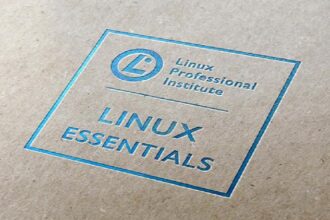What
You’ll Learn
You’ll Learn
- Arabic course 2024: How to communicate with any Arab in addition to learning the Formal Arabic (Modern Standard Arabic)
- Read Arabic voweled books and write Arabic like an Arab starting Now
- NEW and UNIQUE formula to help you convert Modern Standard Arabic into Spoken Arabic
- Tips on how to learn Arabic fast
- Learn Arabic grammar and Arabic conjugation
- Speak the Arabic that all Arabic speakers can speak and understand
Requirements
- Be ready to speak Arabic
- Ask questions
Description
Marhaba (Hello and welcome)!
My name is Nezha, and welcome to Arabic 4 U!
Before I talk to you about the course, please read what this student said about it:
This course is a great beginning to basic Arabic conversation in both MSA and as generic a dialect as you’ll find. There are no lengthy lists of related vocabulary words and bizarre sentences like you’ll find in many other courses. Instead, there are common conversational topics and short stories. You’ll also find detailed instruction with plenty of repetition and reasonable pauses for you to repeat the material. The best part is that, wherever appropriate, there are multiple lines of color-coded translations: Arabic (with a focus on the proper Arabic script) and two English translations, including one with a verbatim translation. This shows a true understanding of language learning on the instructor’s part as this method allows the student to learn not only new words but also a new way of thinking as most English-speakers will need to learn to structure ideas in a completely new way. I started the course earlier than I was ready as I had not yet learned how to read in Arabic well enough to get the most out of this course. By the time I returned to it, it had been updated and more great content had been added. Whenever I’ve had a question, I’ve received a helpful and respectful answer. I would highly recommend this course if you can read Arabic and are ready to start learning basic sentences. شكراً جزيلاً يا نزهة
After taking this online Arabic language course, you will start to:
-
Speak Arabic with Arabic speakers from around the world
-
Understand Formal Arabic called Modern Standard Arabic MSA or Fusha
Arabic speakers learn Modern Standard Arabic in school.
It is used in Arabic books, Arabic news, Arabic documentaries, Arabic road signs, and Arabic formal speeches.
-
Make sentences in the Arabic language on your own
-
Speak the version of the Arabic language called “White Dialect of Arabic” that Arabic speakers from different countries speak and understand.
-
Understand Arabic Grammar and Arabic Conjugation.
Understanding Arabic grammar and Arabic conjugation will allow you to learn Arabic quickly.
The biggest mistakes you may make as an Arabic learner are:
-
Not getting the ROAD MAP or the GPS for your Arabic learning journey
This mistake will make you waste a lot of time and energy in addition to feeling frustrated just like when you get lost on the road
This Arabic course will help you avoid all of that by giving you:
-
A clear road map and GPS so you don’t waste time and energy and get frustrated
-
Every step you need to succeed in learning Arabic so you can speak Arabic confidently and fluently in a short period of time
-
Tips that help you speak Arabic with Arabic speakers from around the world
-
-
Learning the non spoken formal Arabic and trying to use it to speak with Arabic speakers
Most Arabic courses teach you the non spoken formal Arabic called Modern Standard Arabic (MSA)or “Fushaa” in its pure form. Pure Modern Standard Arabic is what Arabic speakers learn in school. It is used in Arabic books, Arabic news, documentaries, and Arabic formal speeches. It is not spoken in its pure form.
However, Arabic speakers use a CONVERTED version of Modern Standard Arabic to communicate with each other when they do not speak the same dialect or if they want to target all Arabic countries.
Since they were no formulas or techniques that teach Arabic learners how to convert Pure Modern Standard Arabic into spoken Arabic, I decided to develop and create these formulas and techniques for my private Arabic students.
During my 20+ years working as an Arabic linguist, teacher, translator, and interpreter, I researched the way Arabic speakers convert Modern Standard Arabic into Spoken Arabic and created these formulas and techniques.
In this Arabic course, I will share these formulas and techniques with you. I will teach you:
-
Pure Modern Standard Arabic (MSA)
and
-
How to convert this non spoken formal Arabic (MSA) into Spoken Arabic
-
-
Learning Arabic words and Arabic phrases here and there without learning how the Arabic language works
By learning Arabic in an unorganized way, you will never master any topic. Therefore, you will not progress quickly.
This Arabic course will teach you one topic at a time so you can master one topic before you jump to the next. It uses a method called Spiral Method which helps you build on what you already know.
This online Arabic course uses methods which help you learn Arabic and remember what you have learned
-
A spiral learning method meaning that you will learn Arabic vocabulary, sentence construction in the Arabic language, Arabic grammar and Arabic conjugation by mastering one topic at a time.
Some Arabic courses teach you an Arabic word and an Arabic phrase there which leaves you confused on how and when to use them.
In this Arabic course you will learn everything you need to talk about a certain topic.
-
Colors to help you learn Arabic easily, and retain the information you have learned in this online Arabic course, especially if you are a visual learner. Our brains retain information when it is written in different colors, especially in bright colors or colors you personally like.
-
Repetition of Arabic words, Arabic phrases, and Arabic rules to help you learn and retain Arabic pronunciation, Arabic vocabulary and Arabic rules, especially if you are an auditory learner. An auditory learner is someone who learns by listening.
Extra: I will support you during your Arabic learning journey.
-
I will share with you the Arabic material I use to teach my private students.
-
I am available to answer all your Arabic questions.
-
I will be creating more courses for you so I can help you step by step master any type of Arabic you would like.
I am here to help you step by step become fluent in Arabic.
I am here to help you step by step speak Arabic confidently.
Just send me a message on the discussion board and I will answer you as soon as possible.
I check my messages every day before I start teaching my private students who are government employees and officials, business people, healthcare providers and many more.
Take your first step to become fluent in Arabic!
Join the thousands of students I have taught who became fluent in Arabic!
Start your first step to speaking Arabic confidently!
Successful people have a habit of starting right away.
You can always get your money back.
30-Day Money-Back Guarantee
Let’s go! Yallah! Sign up!
See you in the first video!
Who this course is for:
- Students who want to learn formal Arabic and spoken Arabic at the same time
- Students who want to read Arabic confidently
- Students who want to learn some Arabic grammar and Arabic conjugation
- Students who want to speak like Arabs do
- Students who want to use Modern Standard Arabic to communicate in Arabic with Arabic speakers
- Students who want to write in Arabic
- Students who intend to take one of the Arabic proficiency tests such as OPI (Oral Proficiency Interview) in the Arabic language
- including Government employees and officials
- or others Using the spoken version of Modern Standard Arabic MSA
- Government employees
- officials
- or any individual who relocated or will be relocating to different Arabic countries
- Individuals relocating to an Arabic speaking country for employment
- business
- or volunteering to help Arabic refugees
- such as doctors and nurses
- College students studying Middle Eastern Studies
- North African Studies
- Middle Eastern Affairs
- or other subjects involving the use of the Arabic language
- Medical staff and government employees who deal with the non-English speaking Arabic population







